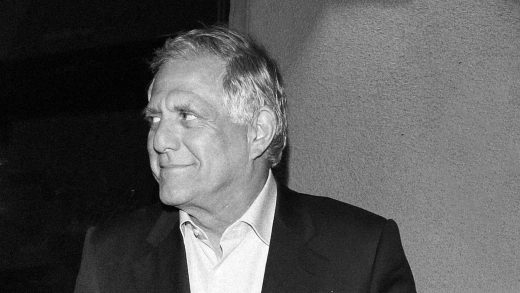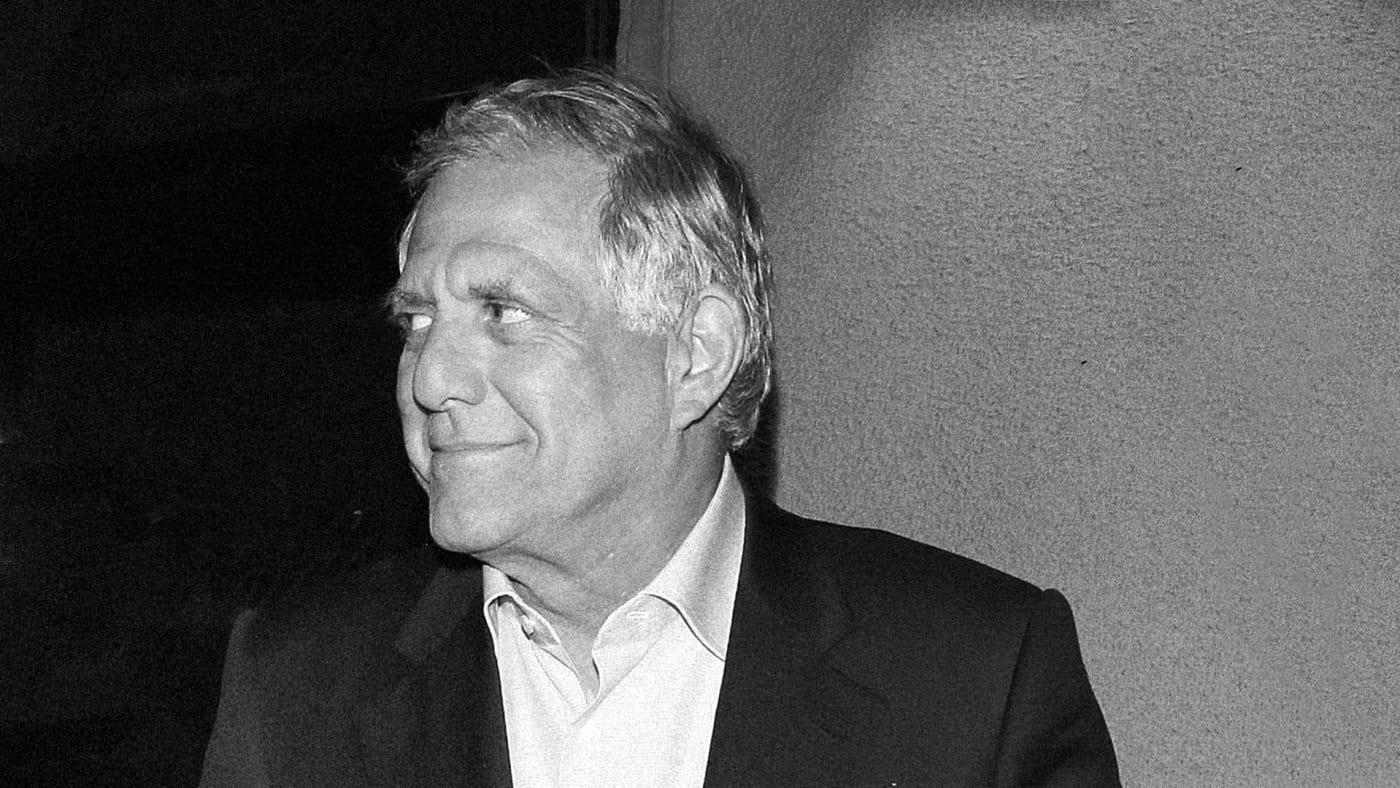Les Moonves and the conflicted moment of Hollywood’s #MeToo movement
During Thursday’s CBS second-quarter earnings call, CEO and chairman Les Moonves was all peppy confidence, rattling off the No. 1 TV network’s stats: Revenue was up 6%! The company’s OTT platforms, CBS All Access and Showtime OTT, are beating expectations and are now on track to hit 16 million subscribers by 2022! Seventy shows were sold in the last quarter! “As you can see, our strategy is clearly working,” Moonves, a former actor, said ebulliently.
The call was a rather surreal moment given its timing. Just a week ago, Ronan Farrow published an explosive piece in the New Yorker detailing six stories of Moonves using his positions of power over several decades of his entertainment career to sexually harass women and, in two cases, threaten to end their careers. Listening to Moonves on the call, none of this turmoil was evident, adding to the sense of conflict that surrounds the Moonves situation, as well as where the #MeToo movement is in Hollywood right now.
In the wake of the Farrow piece, Hollywood is having to reassess one of its most beloved figures. It’s also having to sit by uncomfortably as the CBS board of directors has allowed Moonves to remain in his position atop the leading television network even as it hires two outside legal outfits to investigate the claims, even as other institutions–USC and Moonves’s alma mater Bucknell University–wipe his name from their boards and websites, respectively. On Wednesday, Moonves stepped down from his position on the Commission on Eliminating Sexual Harassment and Advancing Equality in the Workplace, headed by Anita Hill.
But the more meta-level conflict, or discomfort, or flat-out frustration, that the Moonves situation has brought to light has to do with the #MeToo trajectory and where it’s landed as of August 2018. The events that gave birth to this movement started with Harvey Weinstein, then went on to bring ignominy to director and producer Brett Ratner, actor Kevin Spacey, and Pixar and Walt Disney Animation creative chief John Lasseter, among others. Most people seem comfortable with these serial abusers being removed from the industry.
But recent weeks have seen MeToo-adjacent events such as Amy Powell, the head of Paramount TV, being summarily canned for allegedly making racist comments during a notes call about a black TV show, and James Gunn, the Galaxy of the Guardians director, being fired by Disney after some offensive Tweets he made years ago resurfaced. These are not sexual harassers, but it is bad behavior, and for the moment, that was close enough for Paramount and Disney.
This one-size-fits-all, fire-aim-ready approach to dealing with claims of offense–whatever the offense may be–has Hollywood deeply uncomfortable. “I only wish there were some middle ground,” one studio executive tells me. “It seems crazy that people’s entire careers are going up in smoke for things that aren’t at the Harvey level.” This person mentioned the Powell case as one that is particularly aggrieving. “Amy Powell is many things,” says this person, using a few unflattering adjectives that are often used to described hard-nosed female executives. “But racist isn’t one of them.”
This whole notion of a “Harvey level” is, of course, part of the problem. The man who has come to define the #MeToo movement is also its biggest outlier. At this point no one else quite fits that profile. Which is what leads to plaintive posts such as the one from CBS Films head Terry Press on her Facebook page last weekend, where she wrote: “I do not believe that it is my place to question the accounts put forth by the women, but I do find myself asking that if we are examining the industry as it existed decades before through the lens of 2018, should we also discuss a path to learning, reconciliation, and forgiveness?
“To reach a point where we can accept some space between zero accountability and complete destruction, we must first grapple with the issue of equivalency. If we paint episodes of vulgar (and deeply regrettable) behavior from 20 years ago with the same brush as serial criminal behavior, we will never move forward and more importantly we eschew the complicated nuances of context for the easier path of absolutes.”
Without any institutional due process–remember that Hollywood spent a century institutionalizing and romanticizing harassment, from entry-level employees being verbally abused as a rite of passage to the casting couch–the industry at present isn’t sure how to punish bad behavior that is creepy and offensive and perhaps could be the subject of civil litigation but isn’t criminal. As a result, much is left to circumstance. If you work at Disney, a particularly image-sensitive company that also happens to be slavishly committed to precedent, you’re done. Lasseter’s ouster was arguably also influenced by the fact that just a few days before Disney announced its decision, Weinstein was slapped with another rape charge and the image of him being led into a New York courtroom was all over the media. In that climate, Disney was not going to take the PR risk and not exile Lasseter. (And if you listen to the Hollywood rumor mill, not all of Lasseter’s skeletons have emerged from the closet.)
But if you work at CBS, as we’re finding, things are handled in more of a backroom, boys’ club style, thanks to the culture of the company (as Farrow illuminated). The CBS board, whose average age is 73 and which is made up of almost all white men who are Moonves loyalists, is not a natural set of allies for equality and justice. As the #MeToo mood of late has been muddied by controversies like that of Gunn’s old tweets, this kind of entrenched culture isn’t going to budge on its own.
To be clear, none of this relativity excuses anything. Someone who has sexually harassed someone or made a person or people feel unsafe or worse should pay the price, regardless of where they work or what else is happening in the news at that particular time. But in the absence of any systemic processes for handling abuse, sexual or otherwise, something of a Wild West environment has opened up, where Twitter has become the jury, and late-night talk show hosts tell us how we should contextualize what we’re hearing or reading.
This is all the more so when it’s someone like Moonves, around whom there is a “familiarity fallacy,” as Megan Garber pointed out in a smart Atlantic piece this week. Unlike Harvey, people don’t hate Les Moonves. Read three paragraphs into any story about the television titan with the winning track record and you’ll learn that Moonves is affable, charming, yada yada. Plus he has a better-than-most track record with promoting female executives. In addition to Press, among his protégées are Nancy Tellem, the former president of CBS Television Studios; Nina Tassler, the former chairwoman of CBS Entertainment; and Dawn Ostroff, the former head of the CW who recently became Spotify’s chief creative officer. Unlike Lasseter, Moonves sits in the very center of the Hollywood ecosystem and has made a lot of people a lot of money over the years; not just CBS employees and stockholders, but everyone in the entertainment food chain from producers to agents to showrunners to actors.
In short, if Hollywood is like high school–and Hollywood is in every way like high school–Moonves is the class president. (If you want to take the analogy further, Lasseter was the quirky artist; Weinstein was the bully; Ratner was the self-styled bad boy smoking in the parking lot; Charlie Rose was the bookworm; and so forth.) When the class president is accused of wrongdoing, particularly wrongdoing that took place years ago and is in the very-bad-but-not-criminal bucket, then people start wringing their hands. Which explains why there hasn’t been the off-with-his-head Twitter movement we saw with Lasseter (it helps not to be associated with kids’ entertainment), and why, a week after the New Yorker piece posted, there is only a mild whiff of a backlash, most notably by Samantha Bee last night, who said, “Les Moonves may be a brilliant TV creator, but no cop procedural, no matter how well-crafted and original, is worth ending a woman’s career to shut her up.”
Hollywood should not wait for the next case, or for some industry or society-wide Nuremberg trials, to rethink its internal HR policies regarding harassment. It could communicate these policies clearly to all employees, and perhaps even to the public at large. Hollywood has long shaped our culture, and it has a chance to do so again. It can–and should–start today.
(3)



